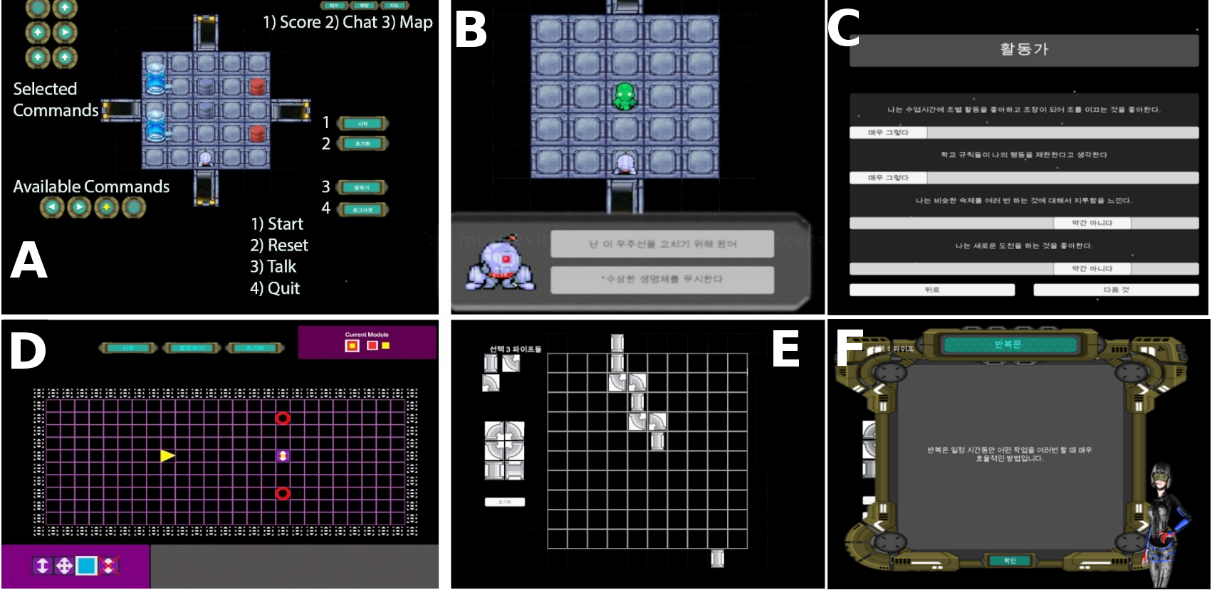Formative evaluation of an adaptive game for engaging learners of programming concepts in K-12
DOI:
https://doi.org/10.17083/ijsg.v5i2.220Abstract
As the global demand for programmers is soaring, several countries have integrated programming into their K-12 curricula. Finding effective ways to engage children in programming education is an important objective. One effective method for this can be presenting learning materials via games, which are known to increase engagement and motivation. Current programming education games often focus on a single genre and offer one-size-fits-all experience to heterogeneous learners. In this study, we presented Minerva, a multi-genre (adventure, action, puzzle) game to engage elementary school students in learning programming concepts. The game content is adapted to play and learning styles of the player to personalize the gameplay. We conducted a formative mixed-method evaluation of Minerva with 32 Korean 6th grade students who played the game and compared their learning outcomes with 32 6th grade students who studied the same concepts using handouts. The results indicated that, in terms of retention, learning was equally effective in both groups. Furthermore, the game was shown to facilitate engagement among the students. These results, together with uncovered issues, will guide Minerva’s further development.

Downloads
Published
Issue
Section
License
IJSG copyright information is provided here.
